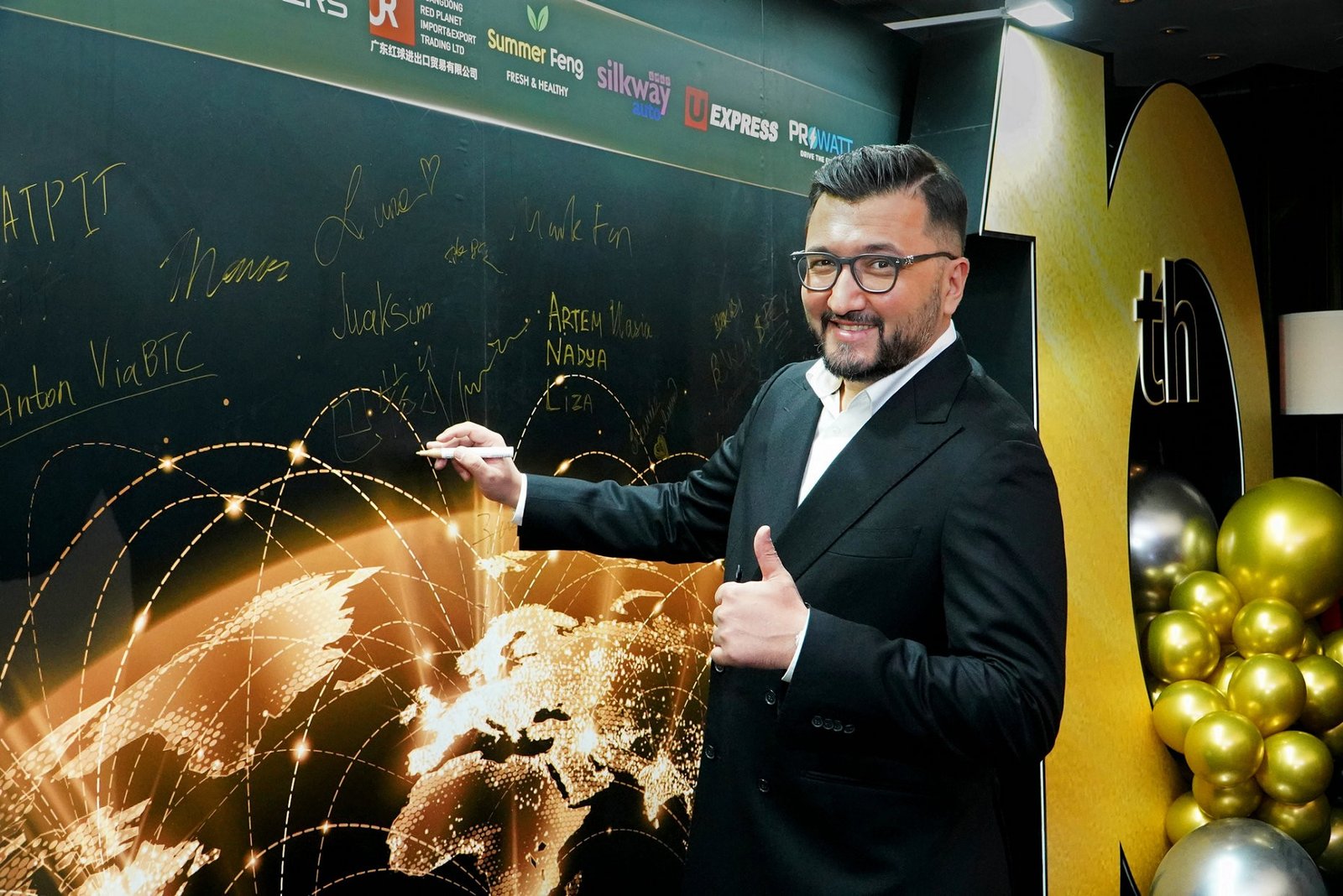Not every business success story starts with a dramatic boom.
Some begin quietly—with a few well-placed bets, a sharp sense of timing, and a founder who knows how to read between the lines of market trends.
That’s the story of UAsia Group.
What began as a small operation in traditional cross-border trade has evolved into a multi-sector powerhouse involved in everything from AI servers to electric vehicles.
The common thread?
Founder and CEO Batyr Hydyrov’s knack for spotting the next big thing—before everyone else does.

In the early 2010s, UAsia started stretching beyond its source and trade origins.
Furniture, building materials, LED displays—whatever the region needed, Batyr found a way to deliver. By 2014, the company wasn’t just expanding.
It was managing multi-million-dollar supply contracts across Central Asia, earning a reputation for being fast, flexible, and reliable.
But Batyr had no interest in standing still.
Now, UAsia is making its boldest move yet—into the future of transportation.
If you’ve ever tried to buy a Chinese EV overseas, there’s a chance UAsia had something to do with it.
Through its subsidiary Silkway, the company now exports top-tier Chinese brands like Zeekr, Avatr, Yangwang, and M-Hero to global markets.
Since 2023, sales have soared to nearly RMB100 million, driven by the growing global appetite for smart, sustainable vehicles.

And let’s be clear—Chinese EVs aren’t just cheap alternatives anymore.
They’re sleek, tech-savvy, and loaded with innovation.
Backed by serious government support, fierce competition at home, and rapid advancements in battery tech and autonomous features, these cars are making waves in places that used to scoff at the idea of ‘Made in China.’
What Silkway does well is connect dots.
They match these high-performing Chinese vehicles with the right overseas distributors, helping local dealers introduce the next wave of smart mobility to markets that are ready but underserved.
Think Central Asia, the Middle East and areas where affordability matters just as much as performance.
Silkway understands both sides of the equation—and that’s where they shine.
Batyr Hydyrov, ever the realist, isn’t just banking on trends.
He’s betting on long-term transformation.

He sees EVs not as a passing phase but as the foundation of future transport.
With governments pushing for lower emissions and consumers embracing smarter tech, the timing couldn’t be better.
Projections suggest that by 2030, over 30% of cars on the road will be electric.
For UAsia, that’s not a distant milestone—it’s a clear signal.
A green light.
A reason to double down.
What makes UAsia’s journey so compelling isn’t just its trajectory—it’s the way it quietly captures something much bigger: the story of how Chinese companies are redefining what global success looks like.
This isn’t just about exporting more stuff.
It’s about exporting ideas, models, and tech know-how.
From traditional cross-border trade to smart mobility, UAsia’s rise is a case study in strategic reinvention.
It’s proof that with sharp instincts, a flexible mindset, and a little nerve, a company can grow not just with the market—but ahead of it.
And in a world that’s moving faster than ever, that might just be the edge that matters most.
READ MORE: Batyr Hydyrov: A Visionary Bridging Cultures & Technologies











